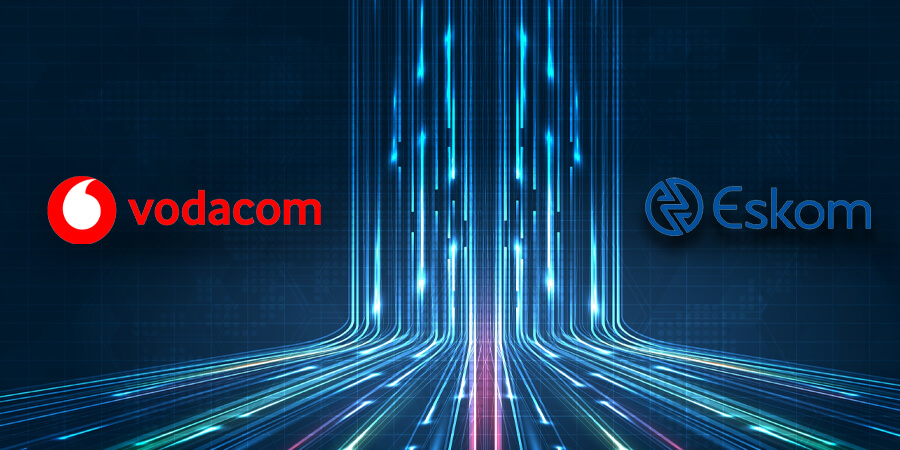In a first of its kind in South Africa, Vodacom signed a Virtual Wheeling agreement with Eskom that will help accelerate efforts to solve the country’s energy crisis. In addition to adding capacity to the nation’s power grid, this agreement — a Vodacom innovation that has been co-developed with Eskom — will also play a significant role in moving Vodacom closer to its goal of sourcing 100% of its electricity demand from renewable energy sources by 2025. This agreement will now enable Vodacom to execute the next phase of this innovative solution: securing Independent Power Producers (IPPs) under the same terms and conditions that underpin its agreement with Eskom.
The energy crisis in South Africa has been devastating for many businesses. Vodacom South Africa spent more than R4 billion on backup power solutions and R300 million in the past financial year alone on operational costs such as diesel for generators. Not only is this a massive financial burden, but it also poses a significant challenge for the company to achieve its broader environmental ambitions.
Traditional wheeling typically involves a one-to-one relationship between an IPP and a buyer using the national grid to convey their energy. While the concept of traditional wheeling is a fairly common practice globally, it has certain limitations for companies with complex operating environments. For example, Vodacom South Africa’s operating situation is unique due to the complexities associated with having over 15,000 distributed low-voltage sites across the country that are linked to 168 municipalities. Up until this point, this complexity had prevented Vodacom from accessing large-scale renewable energy from IPPs. The virtual wheeling solution addresses these challenges.
After a successful pilot phase, which concluded last year, and following rigorous testing, the newly co-developed solution is now accessible to the public and private sectors on a larger scale. With the agreement now signed, Vodacom will be able to add more capacity to the grid without impacting Eskom’s balance sheet while helping to reduce its greenhouse gas emissions. Furthermore, the blueprint provides an easy-to-follow roadmap for others in the private sector, effectively involving those who want to benefit from cost savings in the process of stabilizing South Africa’s grid and reducing our overall emissions.
The future of virtual wheeling is looking bright, with a number of parties from across industries already showing commercial interest in the solution enabled by Vodacom subsidiary, Mezzanine.
